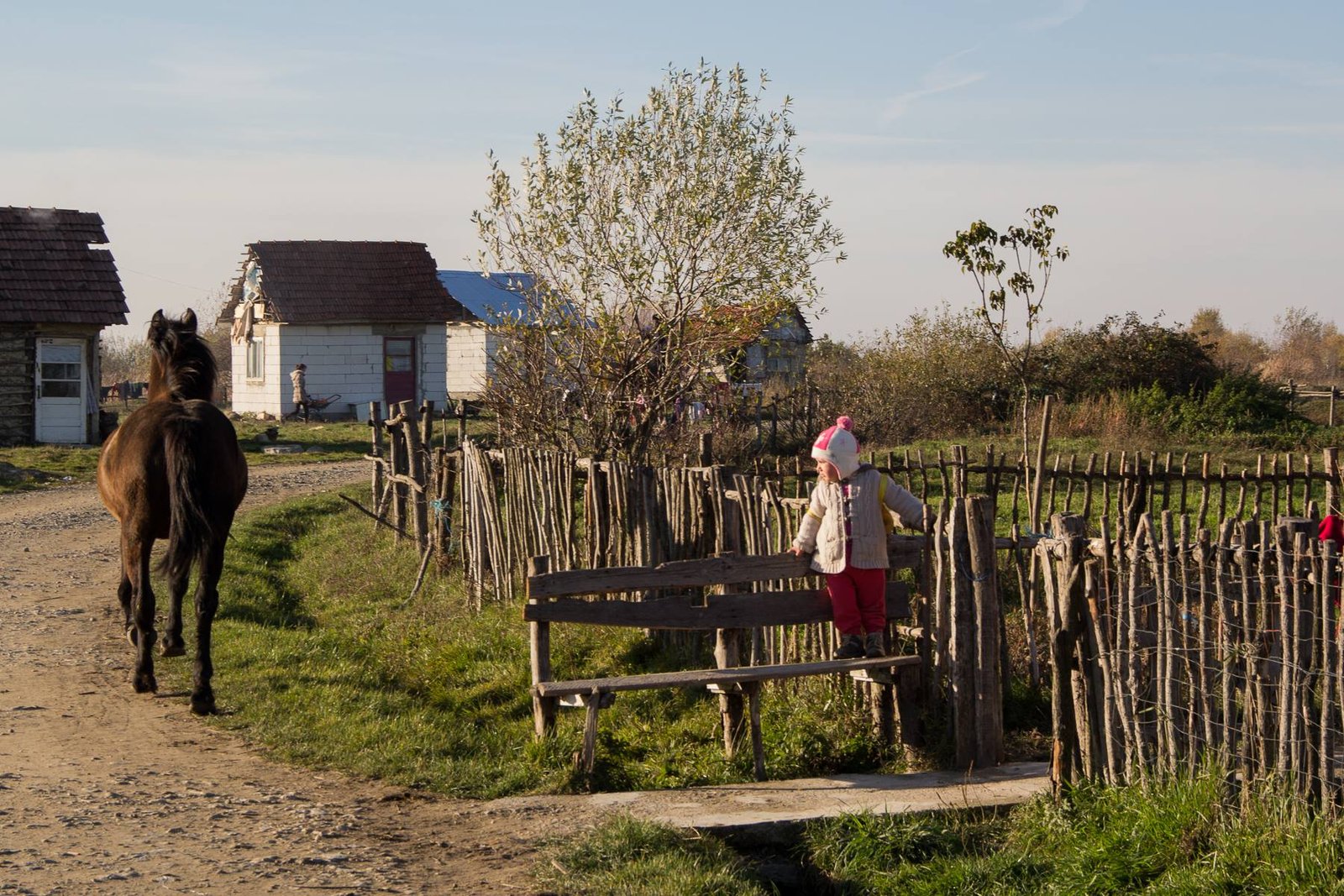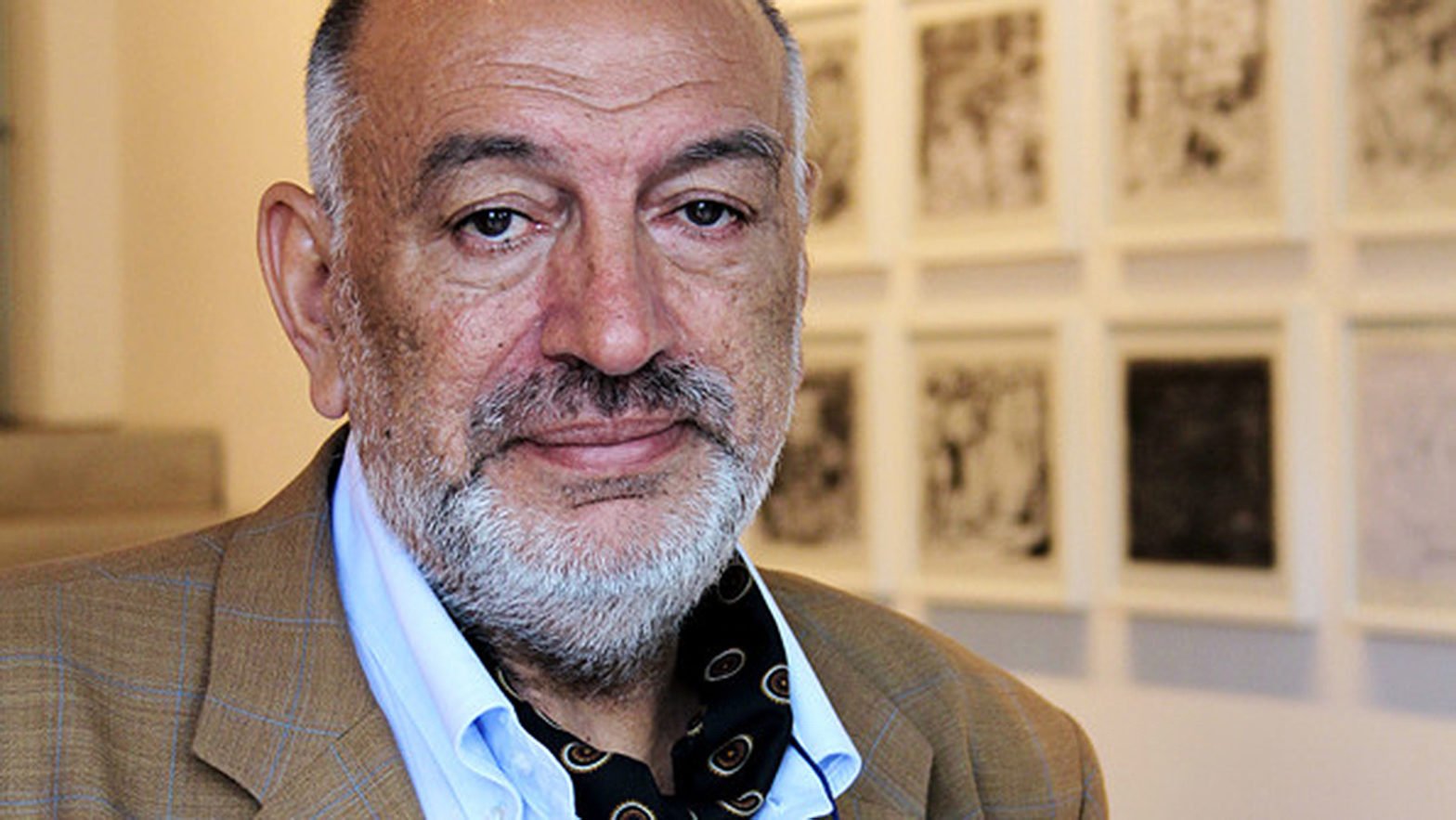Romanian-born sociologist and Romani rights activist Nicolae Gheorghe (1946-2013) has been called the father of the Romani Rights Movement in Romania the Romani Martin Luther King. His earliest writings on the subject of Romani identity and liberation, published under pseudonym and at considerable personal risk, offer valuable insight into the place of Roma in Ceaușescu’s Romania and the beginnings of the Romani Rights Movement.
The following is my English translation of Gheorghe’s “TESTIMONY OF A ȚIGAN“, published March 30, 1982 (under the pseudonym Alexandru Danciu) as a letter to the French newspaper Le Matin, later broadcast by Radio Free Europe.
Dear Mr. Poulet,
Your article published in the newspaper Le Matin on February 15th, which we discovered in Romania through Radio Free Europe disturbed and revolted me deeply and raised a serious matter of conscience. How is it possible that such things happen today in Romania? In search of an answer, we are sadly forced to realize that in our daily lives we face suspicion, fear, abuse, violence, and all the other aspects of terror. But we’ve grown accustomed to this and we ignore it, or we pretend to ignore it in order to hide from ourselves the fear or shame of being afraid; or perhaps also because we prefer to selectively remember, by any means, only the things that could give the impression that we are moving towards a transformation regarding respect for human beings and the citizens of our country.
Accomplices and Victims
Nevertheless, the events you have experienced, more or less extraordinary, force us to pay attention again and meditate on the daily abuses carried out by the repressive forces of Romania. It’s a fact that these abuses, which have become the norm in Romania, can lead to the inhumanity and brutality that you, or Vasile Paraschiv, or others who had the courage to openly express their thoughts on the real situation in this country, were subjected to. Because of our indifference and silence, gradually we too become involuntary accomplices in this conspiracy of terror, of which we ourselves may tomorrow be victims.
Each of us can identify with a moment or a character from your journey in Romania and your attempt to meet Mr. V. Paraschiv. That’s why I think that each of us can and has the mission of following your example, and therefore, describing the methods used by the police in our country, to contribute to the fight against repression and terror that all of us endure in one way or another. It must be mentioned that the methods used by the Romanian police and Securitate [Secret Police] represent just the tip of a huge iceberg of abuse and physical and moral violence. We can and must denounce this reality beginning with our own experience.
“The Thieves and the Țigani”
As for me, even if the entirety of your article compels me to respond, I do so especially due to one particular moment from your story: the part when the policemen from Ploiești are trying to justify the attack against you, insinuating that it’s about the “Țigani [Gypsy] thieves” who could have stabbed you! You sir, Bernard Poulet, surely understood that it was not the Țigani (the real ones) who followed you the whole time and who brutalized you. Surely, those who issued you this “explanation” know themselves how false it is!
Being a Țigan myself, I am well aware of the very widespread mentality among the Romanian authorities, according to which the Țigani of Romania – whose numbers are increasing every day – are a constant source of all sorts of dangers. I was nevertheless surprised to find the extent to which xenophobia and anti-Țigan racism can spread, and in what unexpected contexts this prejudice against Țigani as “dangerous thieves” may be used. There is, in fact, an evolution of the type common in socialist states, from the cliché of the small-time “chicken thief” Țigan to the cliché of the “big-time newsworthy thief” Țigan that is compromising to a political regime, to – who knows? – the thief who becomes an undesirable political dissident.
Xenophobia and Racism
Your article highlights not only the methods used by the Romanian Securitate to silence political dissidents, but also raises awareness of the more subtle procedures through which the authorities try to avert people’s attention from the deficiencies and mistakes of a political regime that plays the dangerous card of xenophobia. In the vision of this kind of regime, political dissidence can be explained through the influence of “foreigners from abroad”; likewise, criticism, resistance, and deviation from the rigid rules of the authorities are often explained through the presence of “foreigners from within,” members of different ethnic minorities. It is a fact that those who express political views that differ from the official ones are suspected of not being “good Romanians,” of being Jewish or having Jewish parents, of serving the “chauvinistic” Hungarians, or wanting to leave the country at any cost, like the Transylvanian Saxons or Banat Swabians, “traitors of their homeland” eager to reunite with their families in Germany. The story with the “Țigani thieves” who attacked you in Ploiești draws the public’s attention to the current prejudice and discrimination against Țigani in Romania. This prejudice is increasingly used by the authorities in order to “explain” the country’s countless problems. A few examples: Țigani are considered to be the main group responsible for “disturbing the public order,” an order whose rules and enforcers you had occasion to meet. The Țigani are also held responsible for the increasing number of thefts and crimes – nevermind factors such as insufficient income, the lack of food and consumer goods, and the frustration of people who are exposed to violence on daily basis and thus respond through violence. Moreover, the Țigani are “social parasites” (much like dissidents after being fired from their jobs), because some of them don’t accept the harsh conditions and poorly paid work at the factories to which they are sent.
It’s said that Țigani have many children because they want to take advantage of the insignificant welfare support given by the state to large families. The authorities are not worried about the continuous decline of living standards, but rather the danger that the increasing number of Țigani (more than one million today) represents for the ethnic integrity of the Romanian state. Numerous other examples could be cited in order to illustrate this “multilaterally developed” prejudice, which I do not hesitate to call racism against Țigani. Many have endured the concrete physical and moral effects of these prejudices and remember with horror the not-so-distant past when they or their parents were suspected of representing a danger, much like they are today, and were deported to concentration camps in distant and unfriendly regions of a country from which many did not return.
Of course there are also thieves, criminals, lazy or violent people among the Țigani, as there are among Romanians, Hungarians, or even among the French, because nationality does not predispose people to criminality. Nevertheless, for the Romanian police and the authorities, to be a Țigan means to be a thief, lazy, illiterate; this preconception perfectly serves the simplistic and xenophobic logic of the “scapegoat.” Mr. Poulet, you could feel on your own skin the subtleties of this logic.
Social Parasites and Forced Labor
It’s possible that some of our neighbours will believe that the Țigani really are like this and will accept with humor or conviction “explanations” like the one you, Mr. Poulet, received in Ploiești. That’s why there are many who know and accept the fact that, beginning in 1976-1977, the police have had permission “from above” to beat Țigani in order to “civilize” them more quickly. That’s also why neighborhoods inhabited by Țigani (in cities like Timișoara, Târgu-Jiu, Sibiu, etc.) are being raided in the morning by groups of armed policemen accompanied by dogs, under the pretext of searching for criminals sheltered by the Țigani. The police officers enter homes by force, beat the women and children, and take the men and boys to the police where they are beaten and threatened until they confess to crimes they did not commit. It’s also known that every summer, these “social parasites,” most of them Țigani, are sent by force to work at construction sites, in agriculture, or at the Danube-Black Sea Canal. And sometimes, Țigani women who have many children are operated upon and sterilized, despite this being unnecessary from a medical point of view.
Many Romanian citizens don’t agree with these kinds of measures. They disapprove, yet they tolerate them, thinking that these measures will only be applied to Țigani. After the “authorization from above” was granted to the police and Securitate for violent acts and abuses, this terror is starting to be applied “regardless of nationality.” Slowly, new people and attitudes are being considered deviant. Thus, today political dissidents and Țigani alike share the mistake of being “social defects” and a “shame” for the “new type” of people who are found in large numbers among the police and Securitate. The pretext of “Țigani thieves” can be invoked even in “delicate” affairs with larger political implications, probably believing that you harbor the same prejudices as those whose mentality only allows Țigani to exist as unskilled laborers or racial stereotypes.


Harmony and Brotherhood
It is obvious that the prejudice and intolerance towards ethnic minorities –including Țigani – never appear in the official propaganda, where everything seems focused on “harmony and brotherhood.” In fact, we never hear about Țigani or their existence in Romania in the official propaganda; they are considered a “remnant of the past” that should disappear through assimilation into the multilaterally developed society through the methods mentioned above.
The Țigani don’t benefit even from the rare cultural rights of the other ethnic minorities (for example, Hungarians, Germans, and more recently Muslims) that have a higher economic and political “price” in the sphere of Romanian diplomacy. Țigani and the “danger” they represent is only discussed “among us”: “us” being those who hold power and cannot keep their position unless they spread terror, suspicion, and hate among those and in whose name they lead. And since, due to the fact that you were assaulted, you became “one of ours,” they could tell you confidentially that in Romania there are Țigani and they are dangerous thieves. And perhaps, Mr. Poulet, this confidential explanation will be followed by an official one, based on an “objective” investigation made by the Romanian authorities, and perhaps it will prove that your aggressors on the evening of February 11th were actually Țigani. It’s even possible that real Țigani will be put on trial publicly, and it won’t be difficult to find someone who will confess to the crime. Maybe someone will do this in order to be pardoned for a different crime or, who knows, to accomplish a work obligation.
I am sure that by now you know the rules of the game and you will keep the brave and honest attitude you showed in your article published in Le Matin, an attitude I have admired both as a human being and as a Țigan who desires to be viewed as more than a potential thief. Because prejudices and suspicion, whoever the victims are, represent only a small part of the many aspects of the terror installed – but for how much longer? – in Romania.
I thank you sincerely for your willingness to read such a long letter, and ask that you please accept my gratitude and best regards.
Alexandru Danciu
(Nicolae Gheorghe)
Translated from the Romanian by Shaun Williams, 2018.



